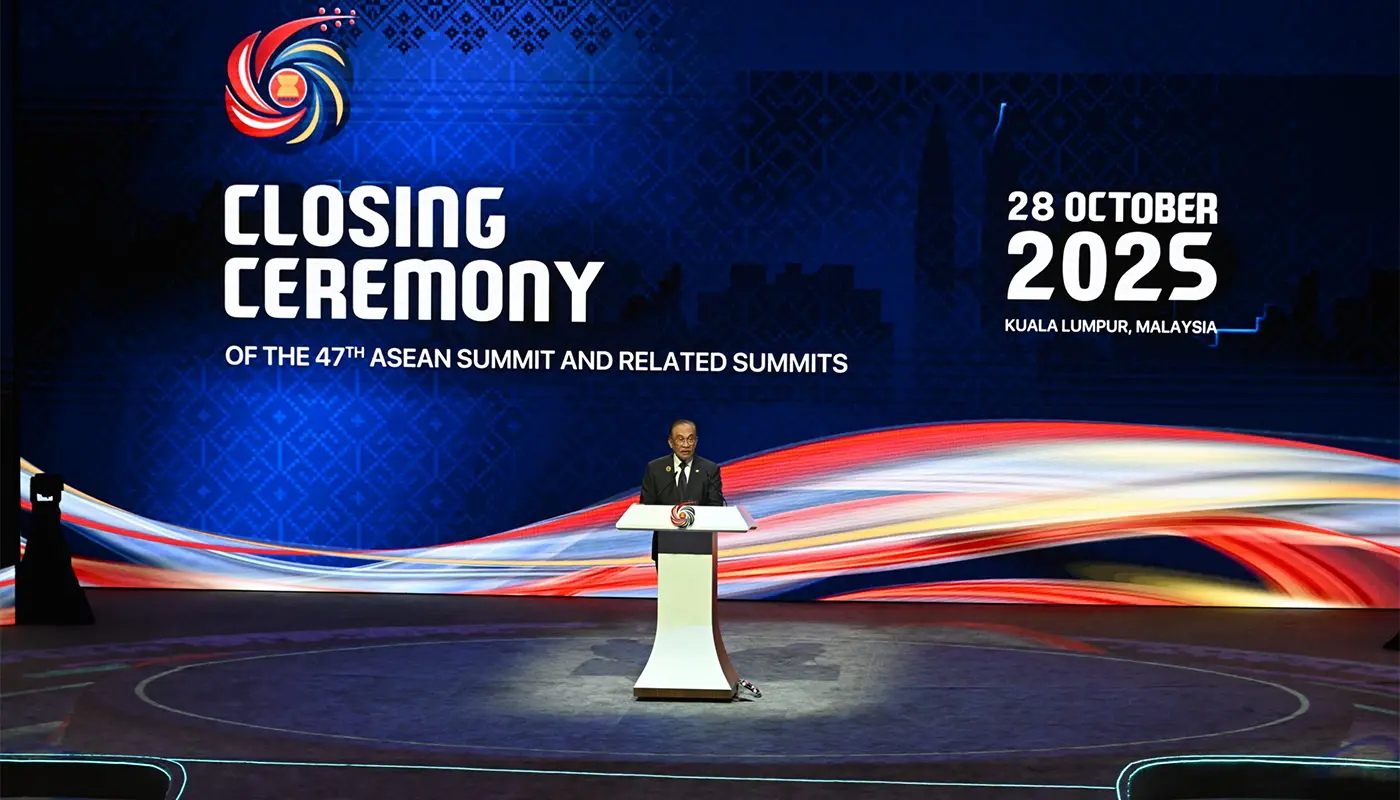KUALA LUMPUR – The 47th ASEAN Summit and Related Summits wrapped up on 28 October 2025 in Malaysia’s capital, marking the close of a three-day diplomatic marathon under the theme “Inclusivity and Sustainability”.
The gathering pulled together leaders from the Association of Southeast Asian Nations (ASEAN), dialogue partners and key global stakeholders, underscoring the bloc’s growing role in a shifting geopolitical landscape.
At the closing ceremony, Prime Minister Anwar Ibrahim of Malaysia, who chaired ASEAN in 2025, reaffirmed the organisation’s central position in regional affairs. He stated: “We revived dialogues, built new bridges, and proved that ASEAN’s machinery, when guided by patience and reason, still works.”
One of the summit’s most historic milestones was the official admission of Timor‑Leste as ASEAN’s 11th member state, the first expansion of the bloc in 26 years. “Today, history is made,” said its Prime Minister Xanana Gusmão, marking not only the realisation of a long-awaited goal for his country but a reaffirmation of ASEAN’s vision of unity.
Beyond membership expansion, the summit tackled an ambitious agenda: economic integration, digital transformation, climate resilience, maritime security and multilateral cooperation. Malaysia’s chairmanship highlighted the need for cohesion amid global disruptions.
In his remarks, Anwar described Southeast Asia as the “most peaceful” region, even while acknowledging regional security concerns and global economic headwinds. The summit also witnessed the Thailand-Cambodia Ceasefire.
The summit also served as a venue for high-level bilateral and multilateral engagements. Leaders of external powers such as the United States, China, India and others attended or participated, reaffirming ASEAN’s role as a key node in the Indo-Pacific architecture.
For Malaysia, hosting the summit underscored its diplomatic credentials. According to commentary, Malaysia “manifested expert diplomacy in realigning and playing a valuable peacemaking role within what is surely a new, disruptive order.”
Looking ahead, the bloc passed the chairmanship baton to Ferdinand Marcos Jr. of the Philippines, who will lead ASEAN in 2026.
Despite the achievements, analysts caution that the real measure of success will be in implementation. The summit outlined broad strategic directions, but translating commitments into concrete actions, especially in areas like digital economy governance, green transition and supply-chain resilience will require sustained effort and cooperation across ASEAN member states and partner countries.
In all, the 47th ASEAN Summit and Related Summits marked a notable moment of momentum for ASEAN: membership expansion, enhanced external engagement and a reaffirmation of purpose under challenging times. The closing in Kuala Lumpur leaves the region poised for the next phase of collaboration and internal consolidation.







